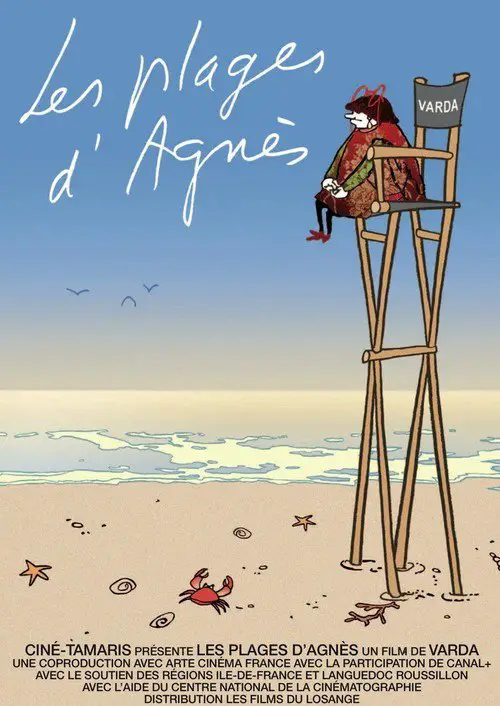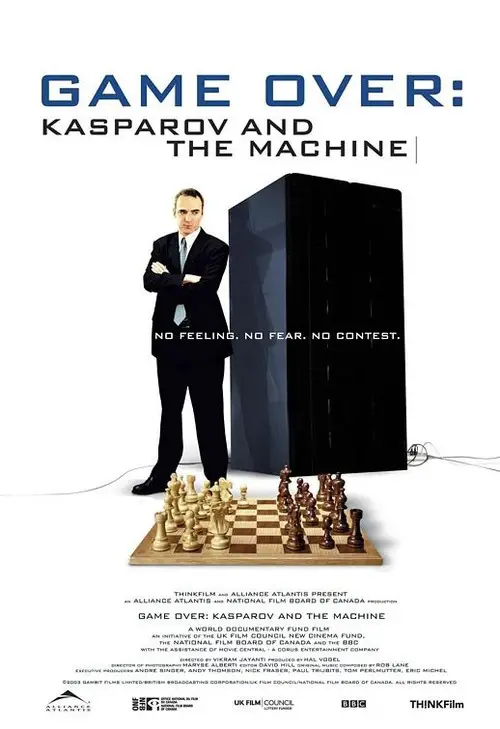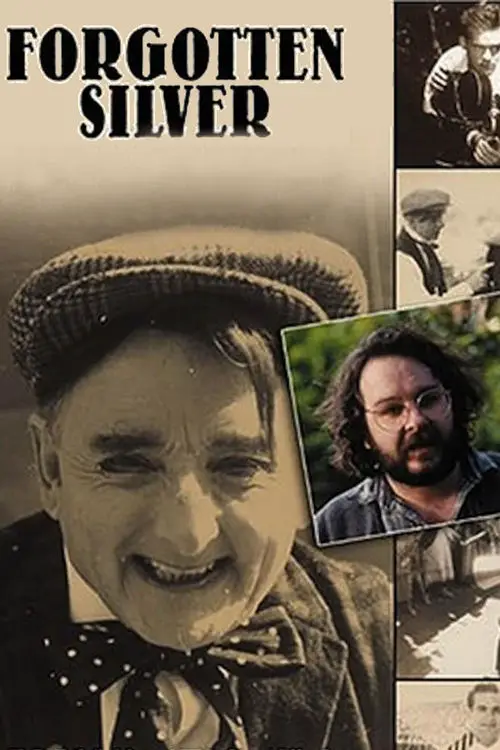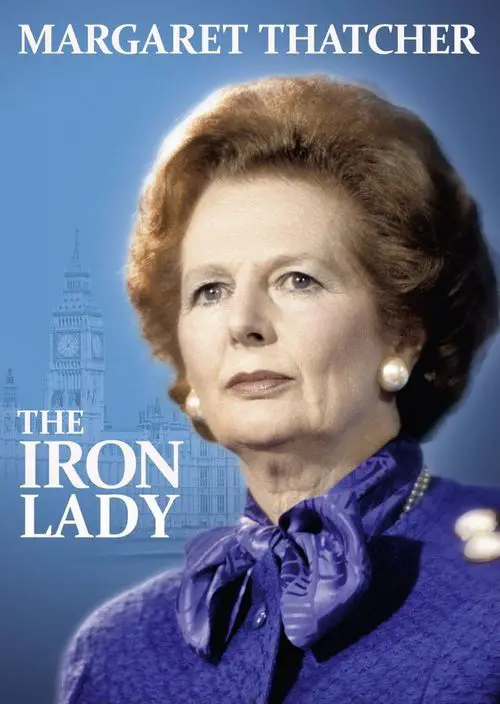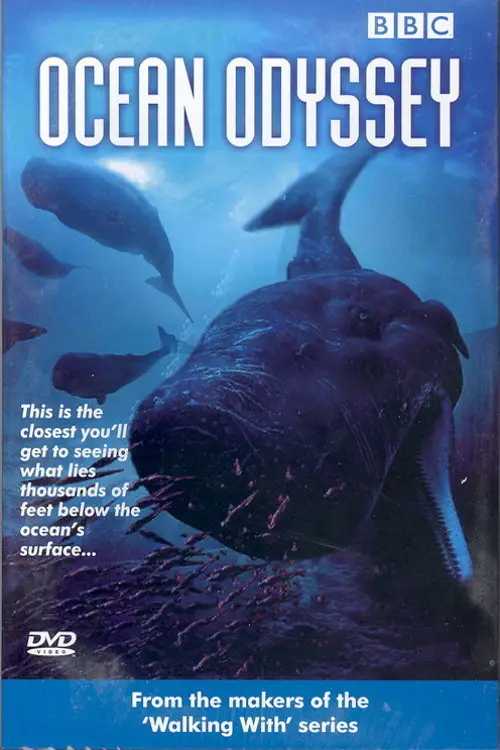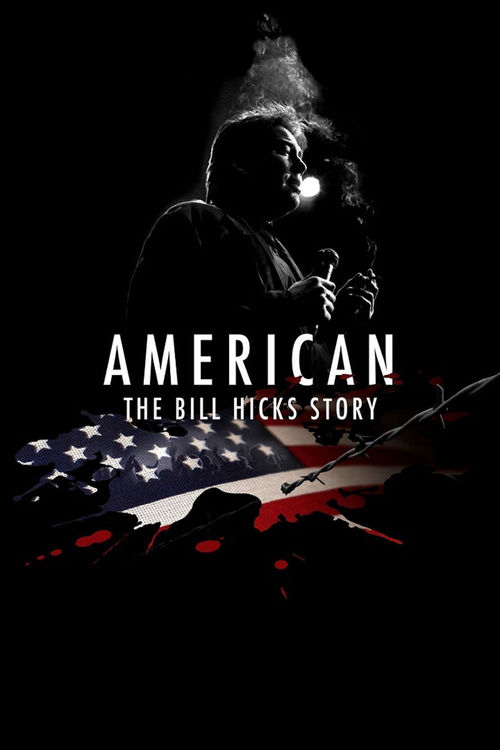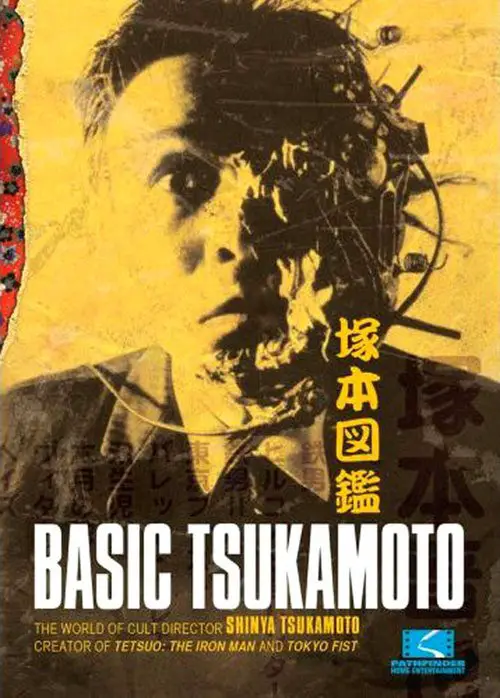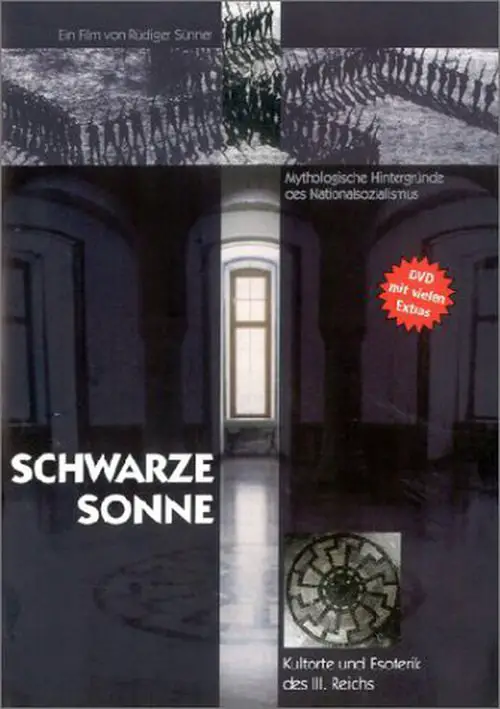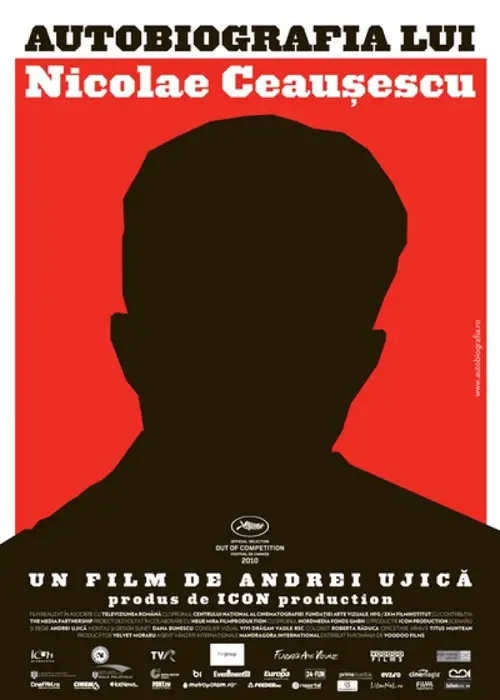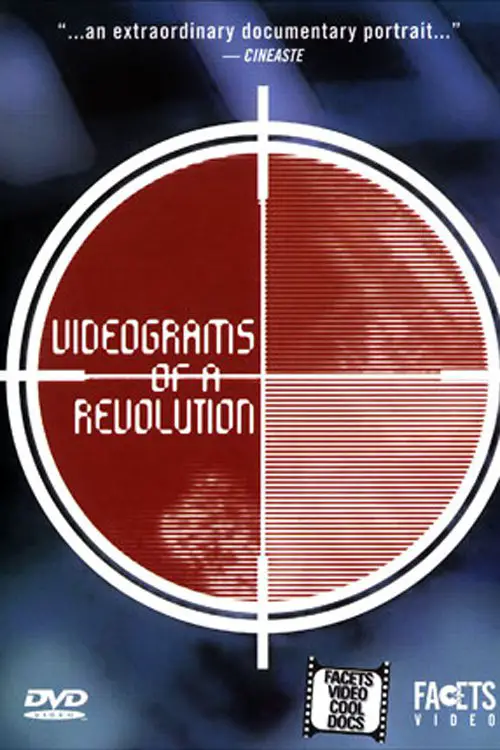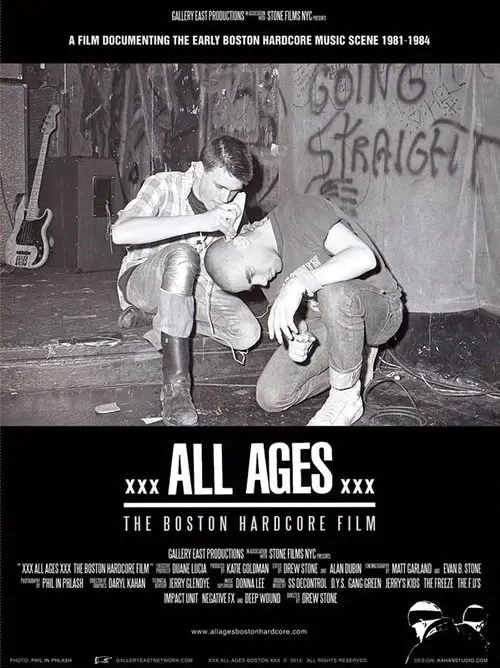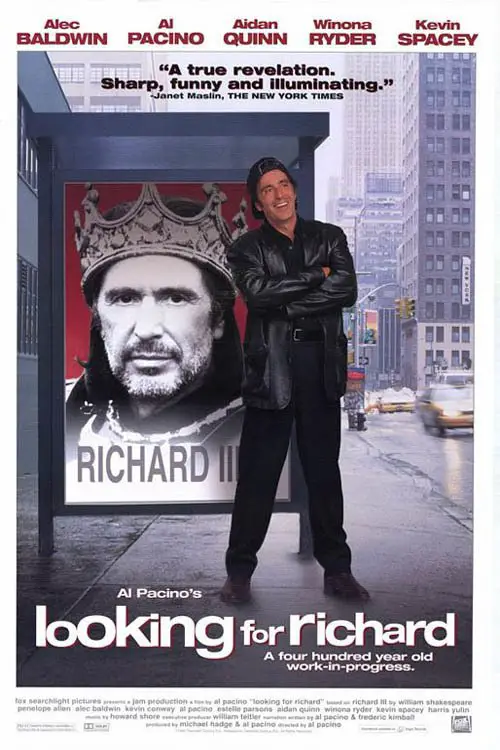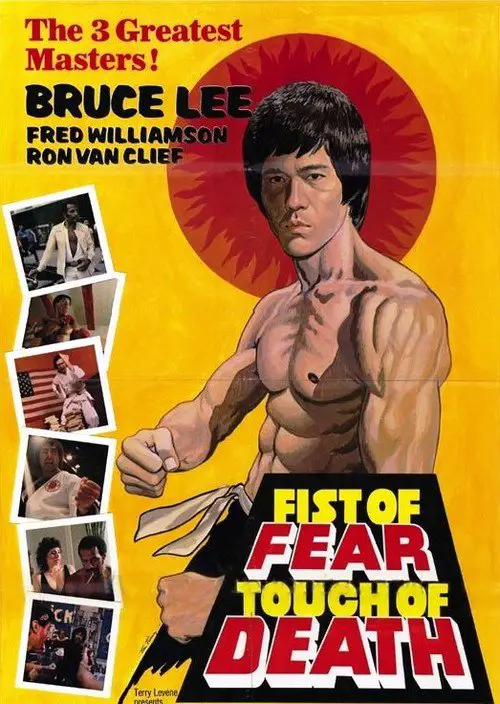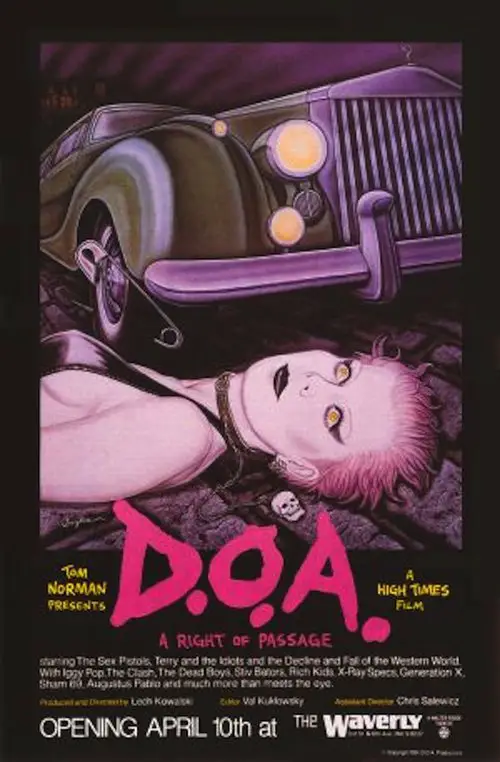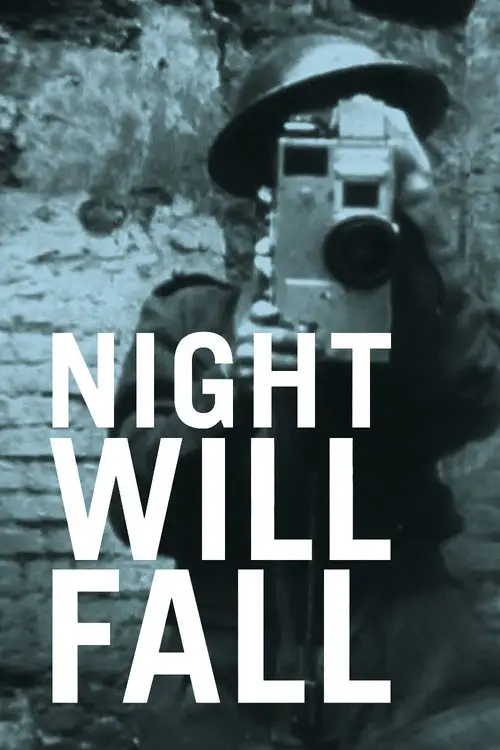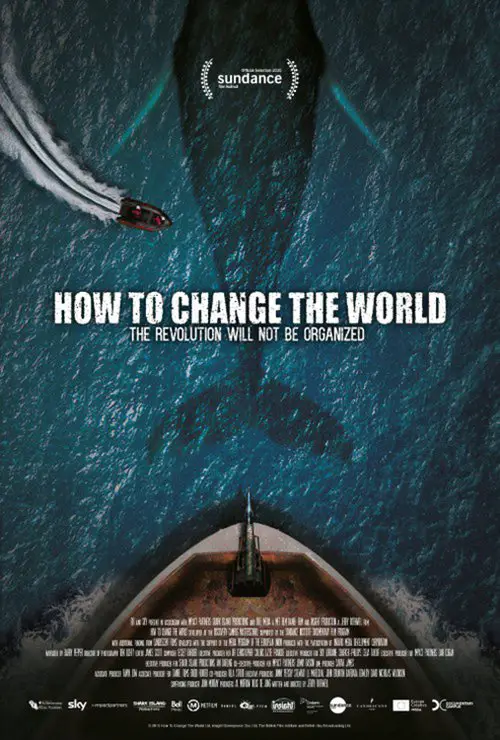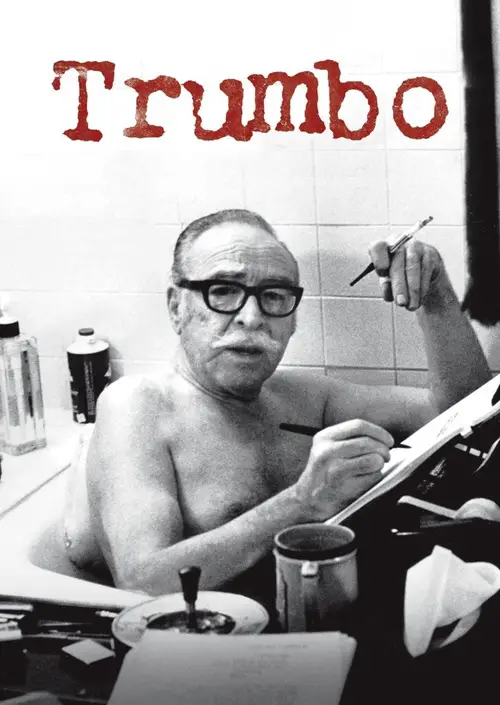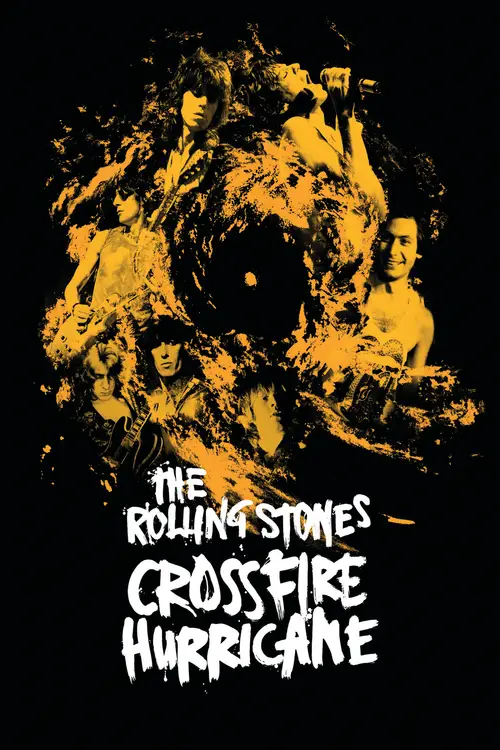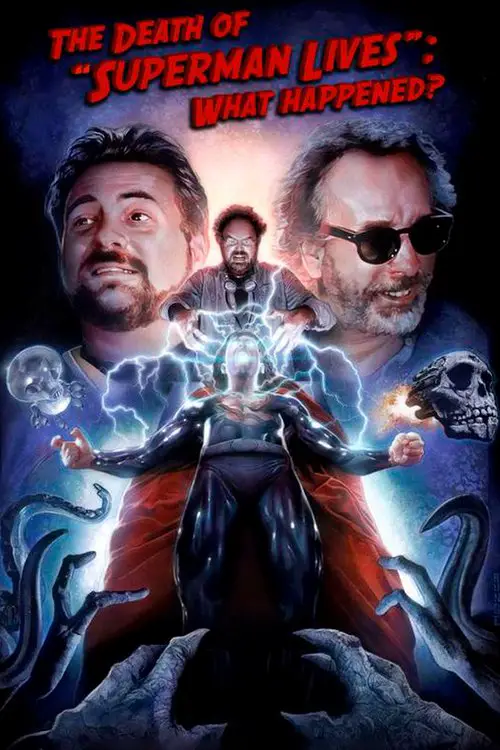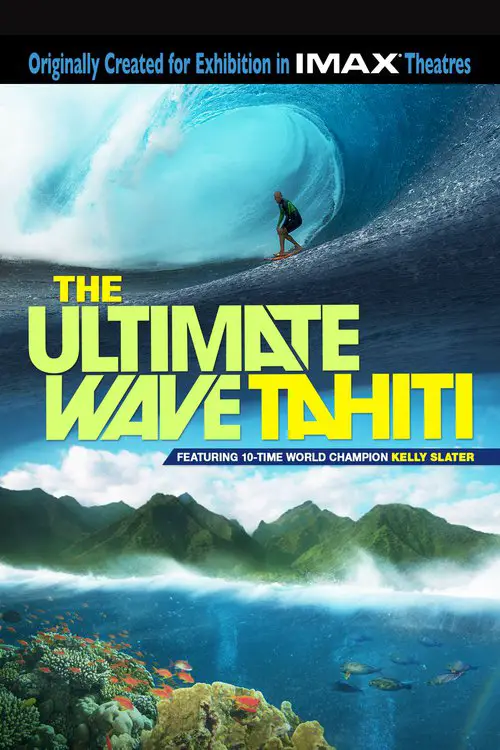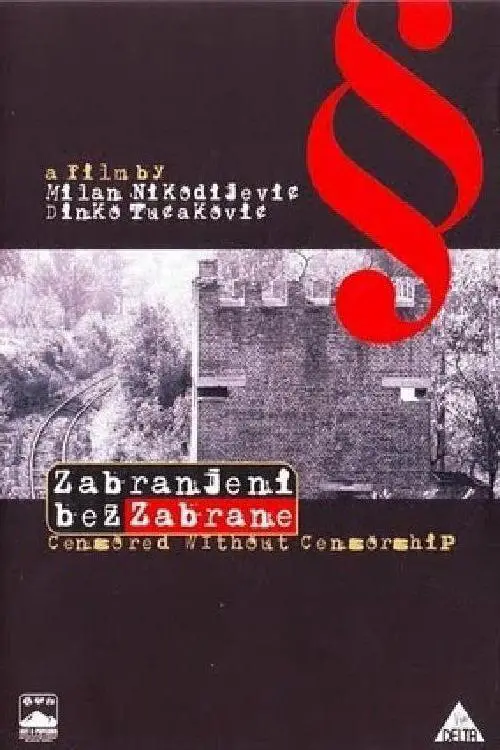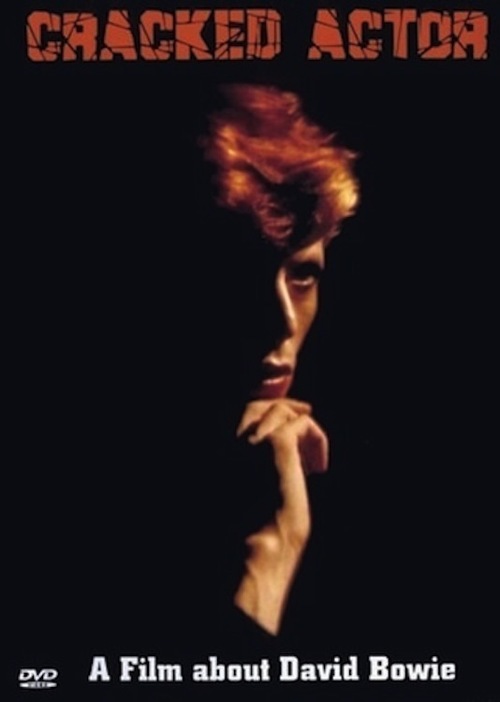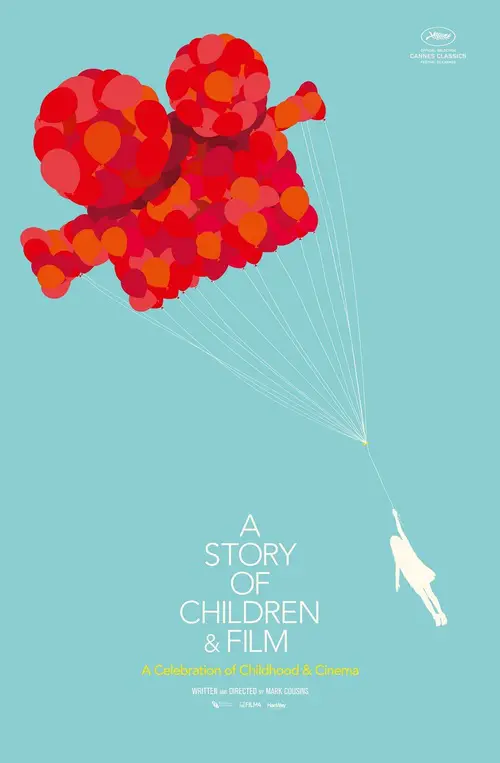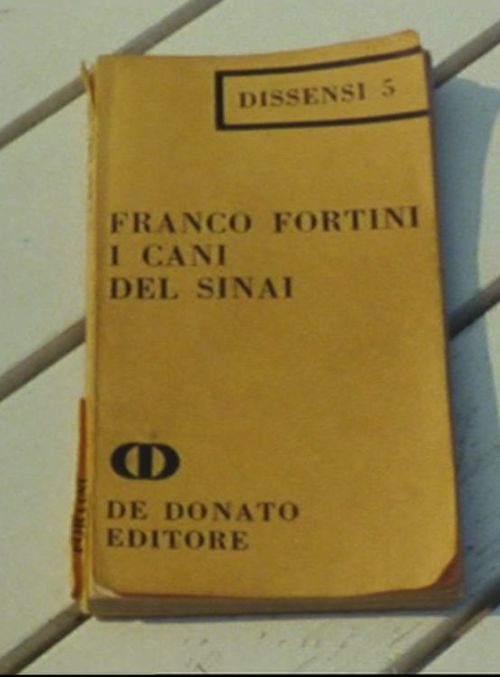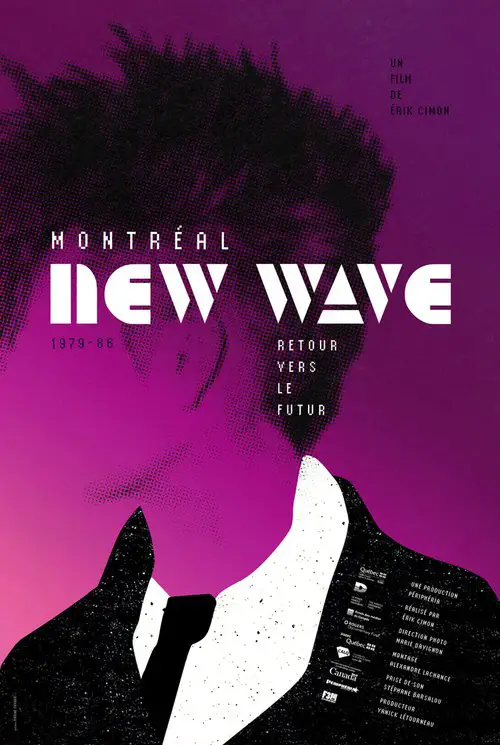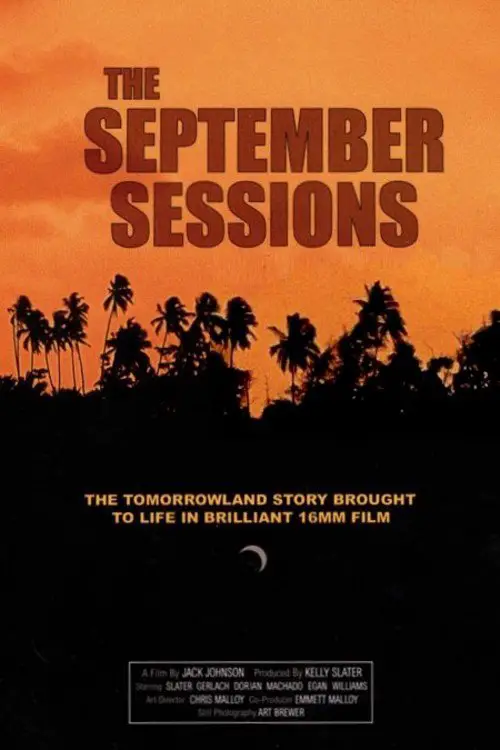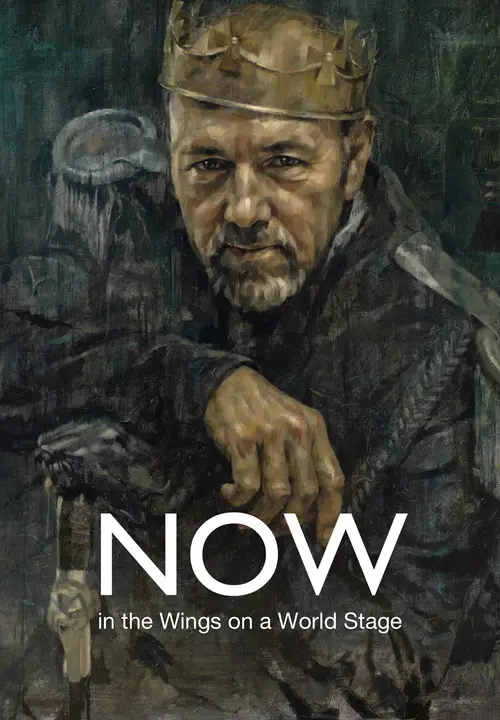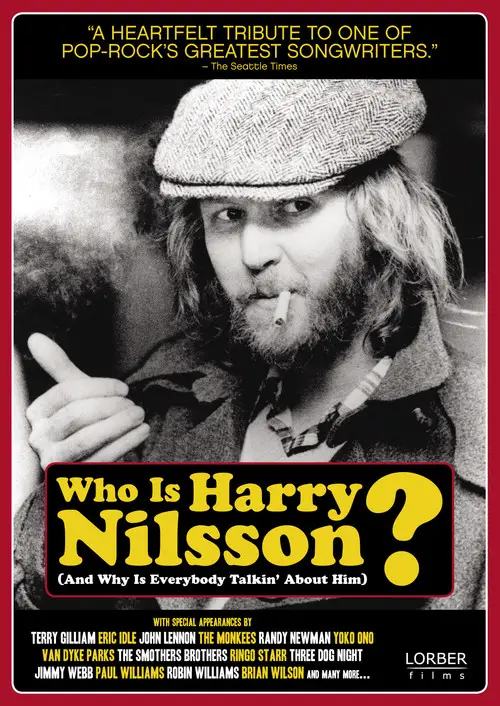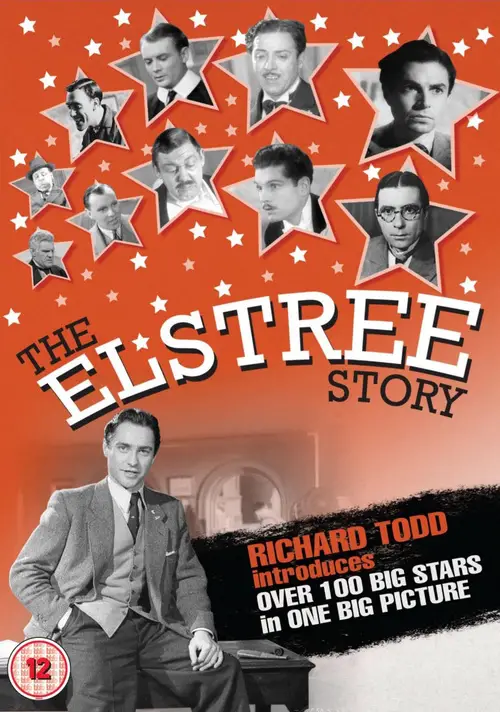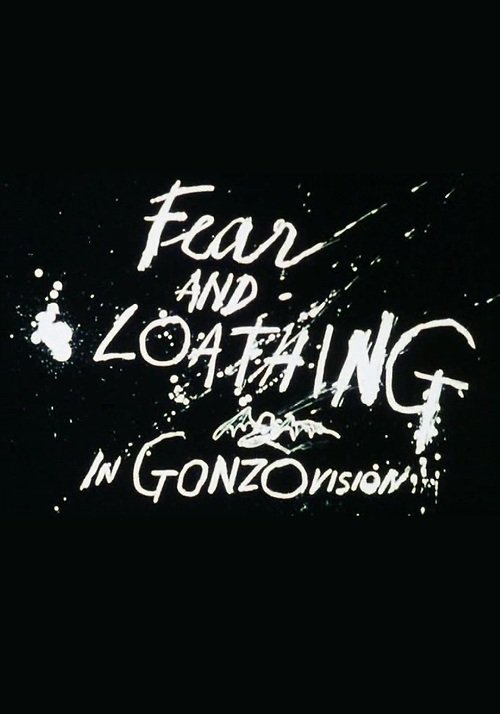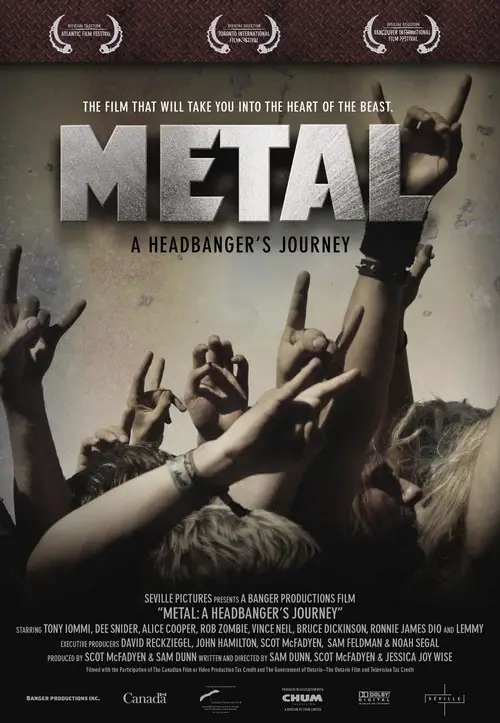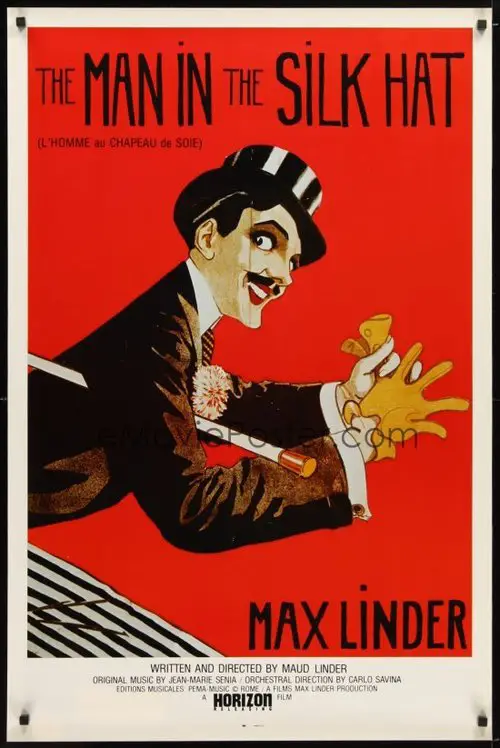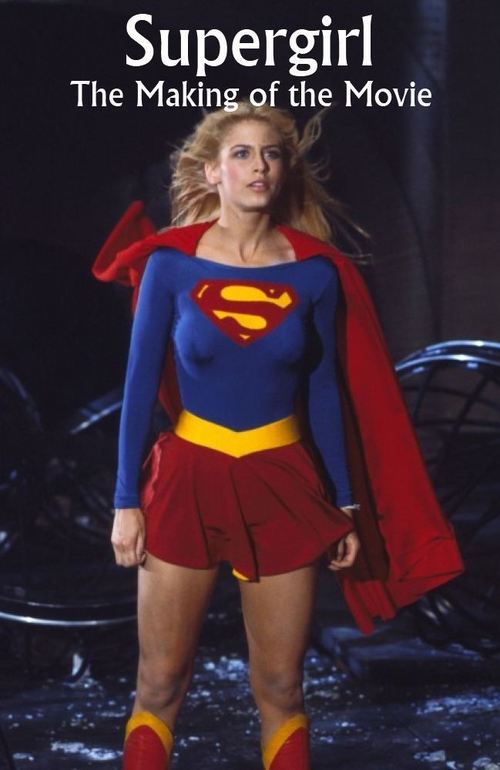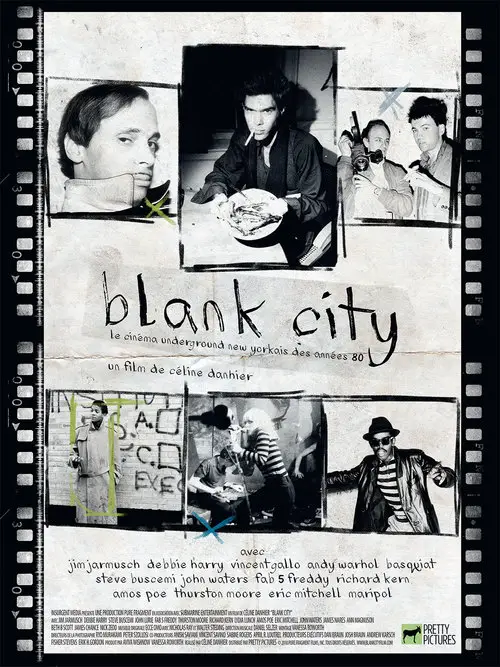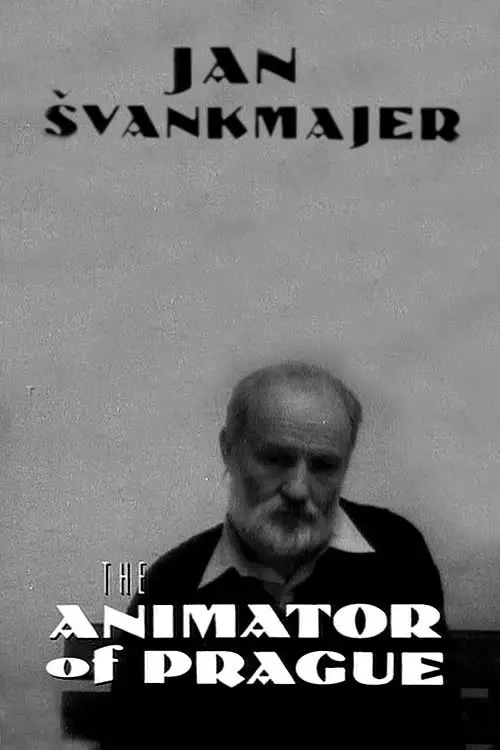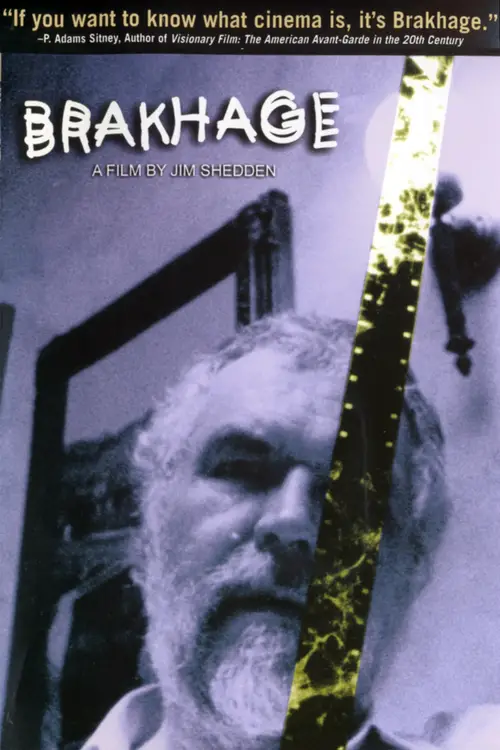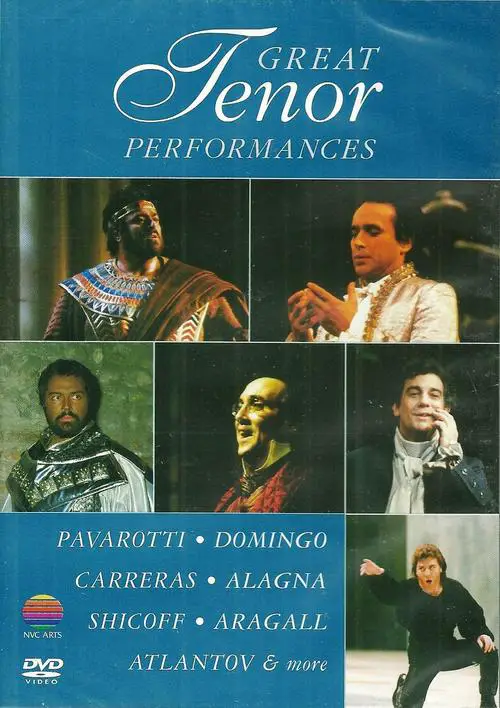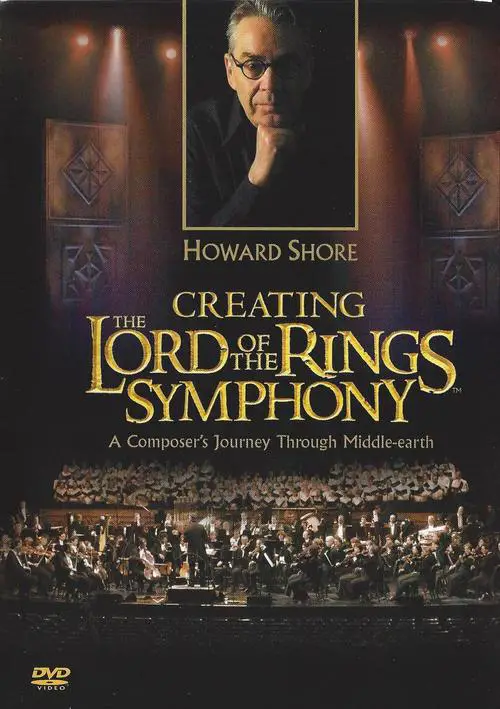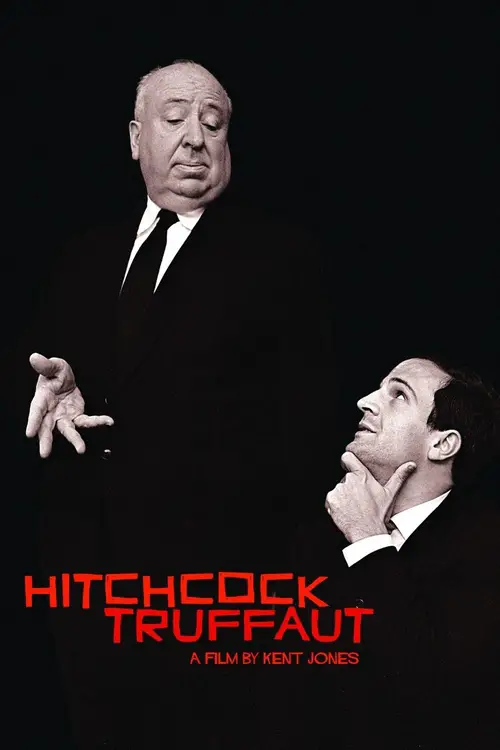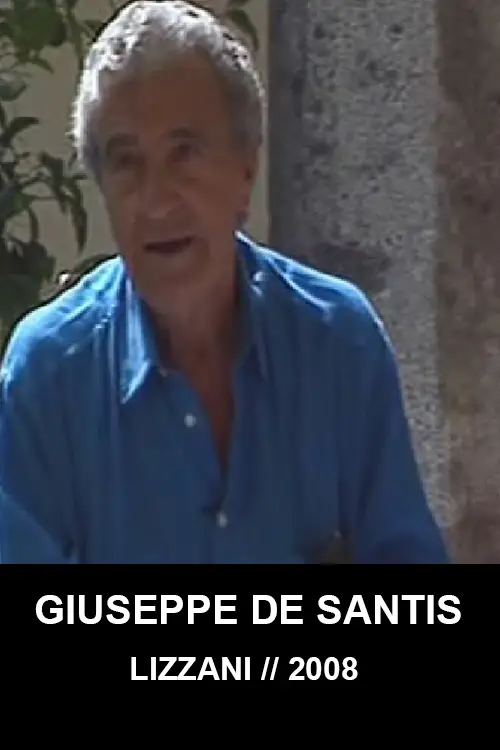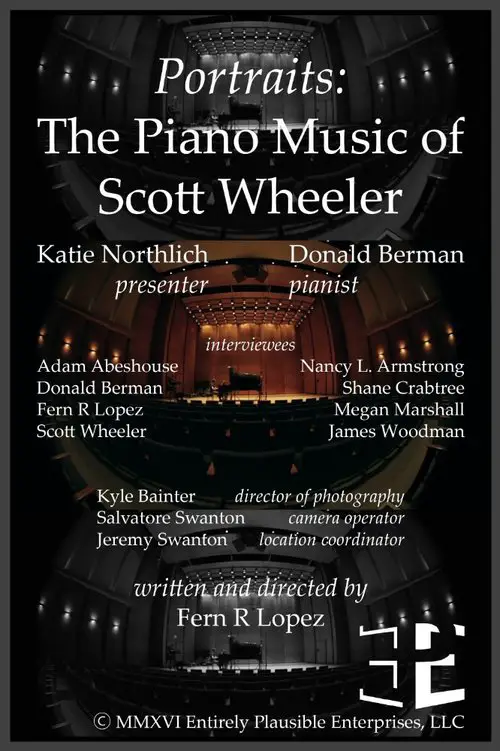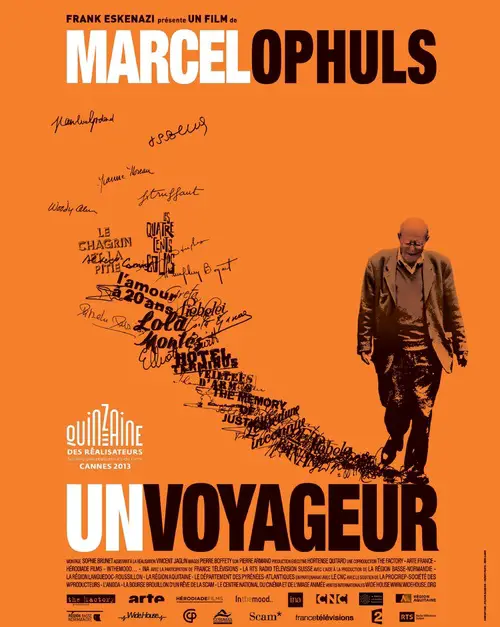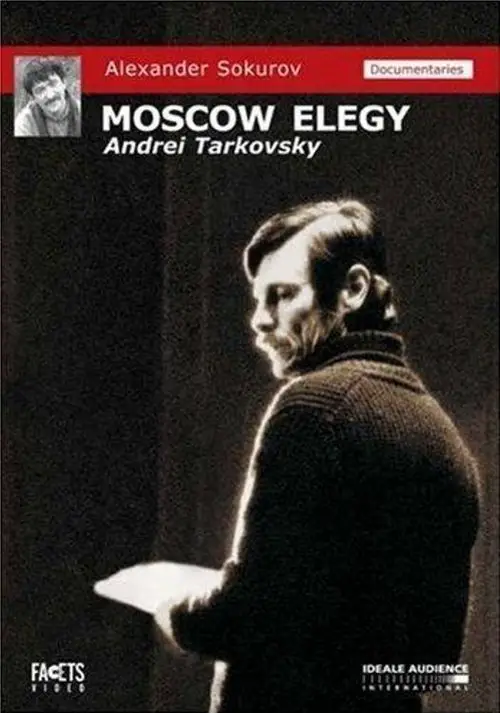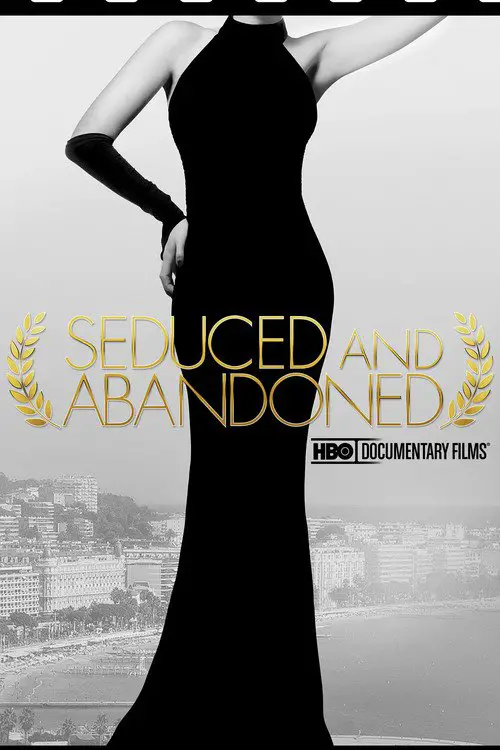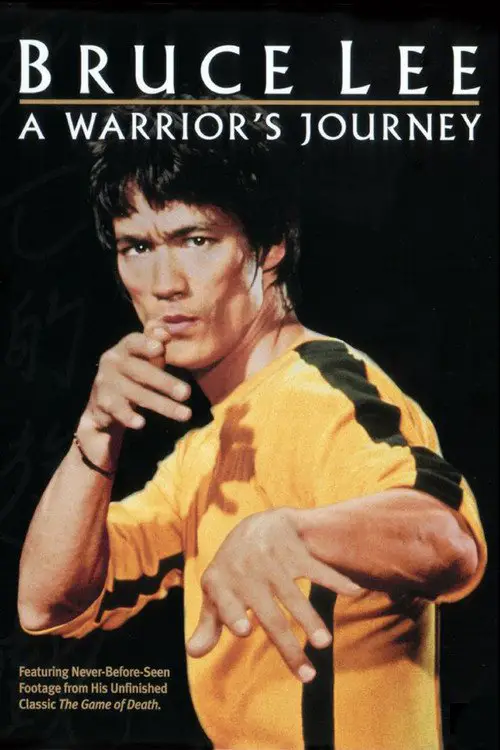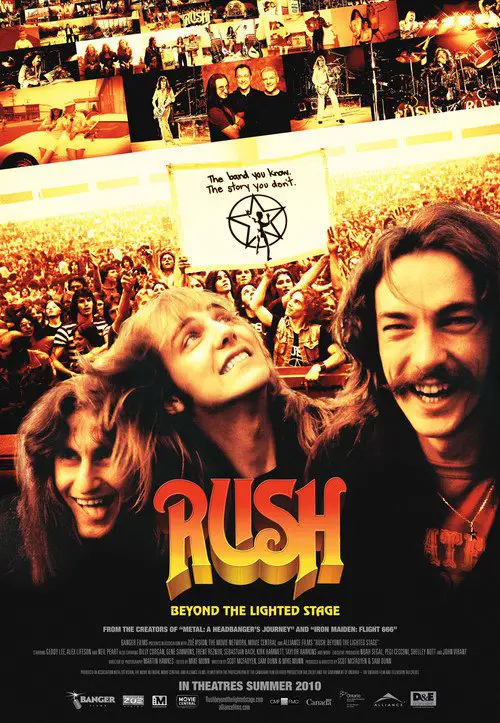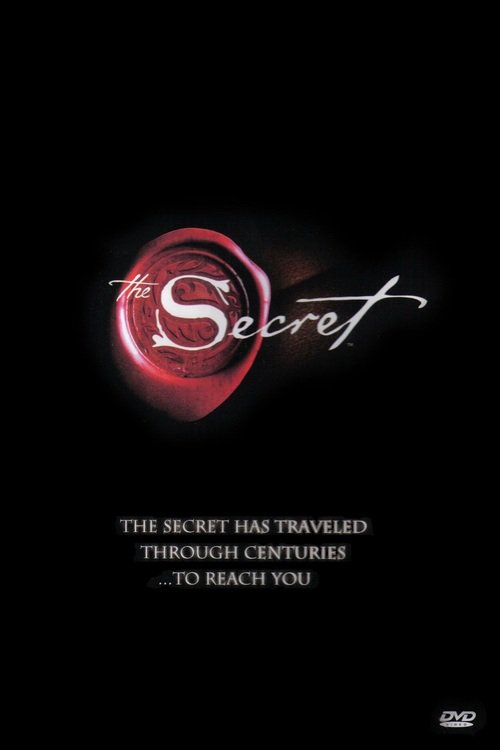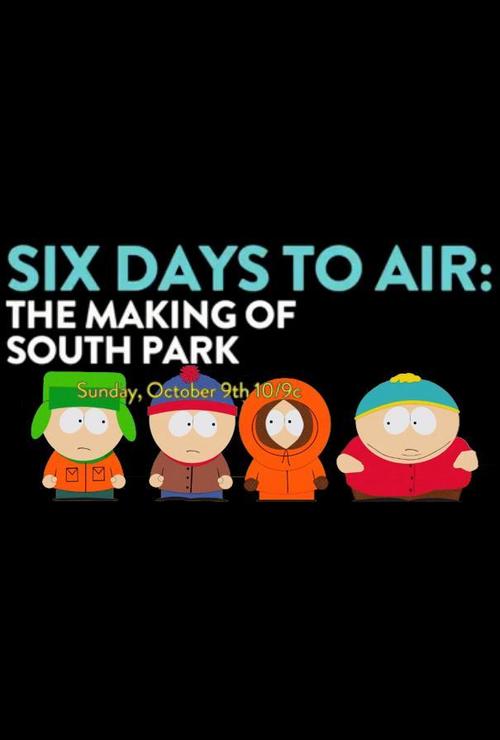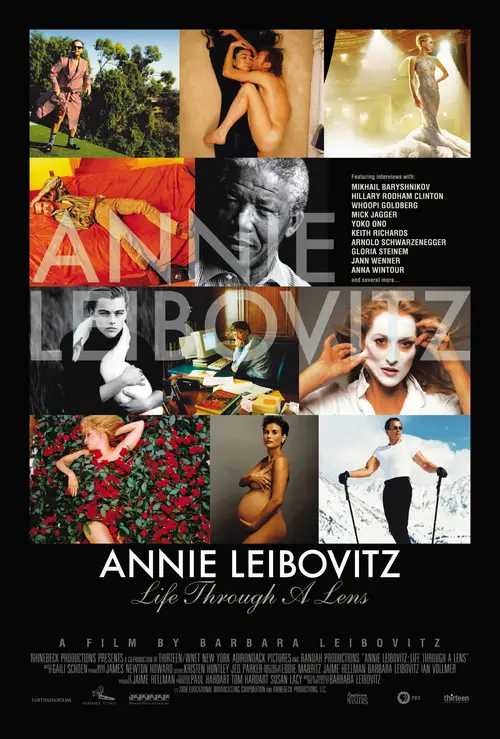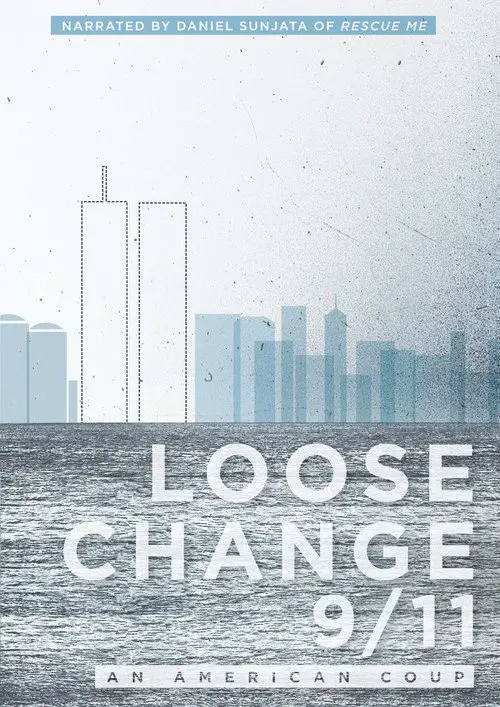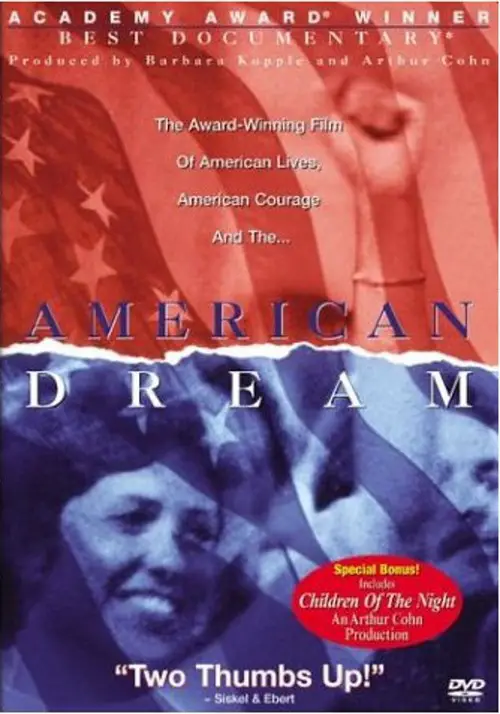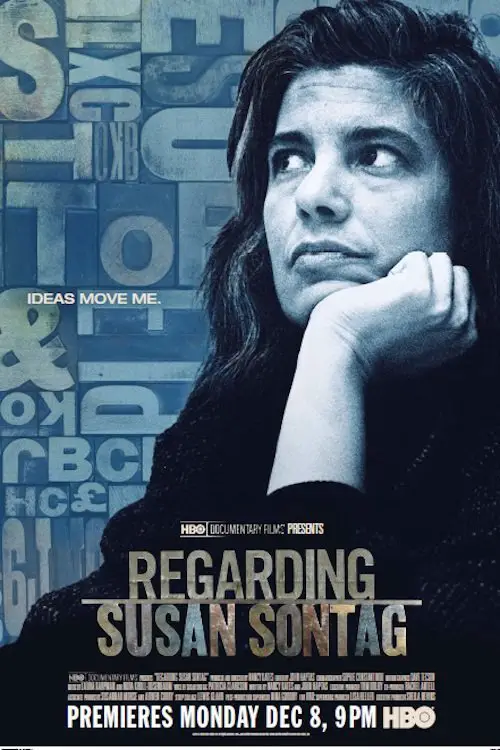Two in the Wave (2010)
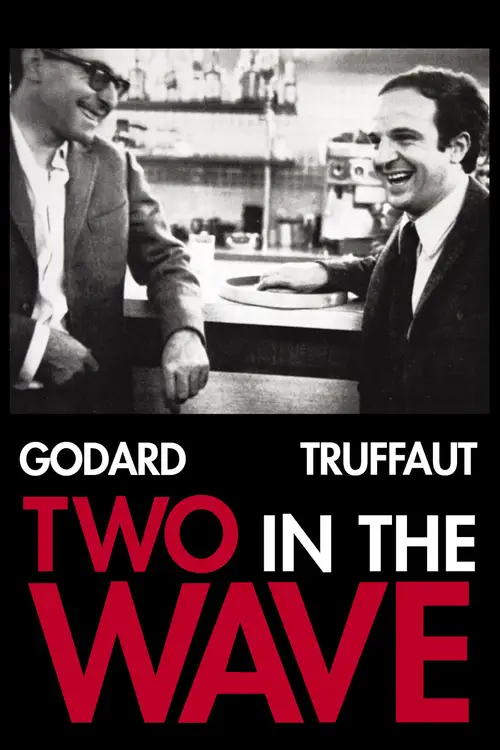
Similar movies
Filmmaking icon Agnès Varda, the award-winning director regarded by many as the grandmother of the French new wave, turns the camera on herself with this unique autobiographical documentary. Composed of film excerpts and elaborate dramatic re-creations, Varda's self-portrait recounts the highs and lows of her professional career, the many friendships that affected her life and her longtime marriage to cinematic giant Jacques Demy.
Garry Kasparov is possibly the greatest chess player who has ever lived. In 1997, he played a match against the greatest chess computer: IBM's Deep Blue. He lost. This film depicts the drama that happened away from the chess board from Kasparov's perspective. It explores the psychological aspects of the game and the paranoia surrounding IBM's ultimate chess machine.
This dryly funny mockumentary about the lost work of a pioneering New Zealand film genius is probably one of the best examples of the faux-documentary genre. In fact, it was so successful that when it originally aired on New Zealand television, hundreds of viewers bought the premise hook, line, and sinker. If you didn't know any better yourself, it's entirely possible you might be duped into believing the extremely tall tale of one Colin MacKenzie, an ambitious filmmaker who made the world's first talking movie (years before The Jazz Singer), invented color film, and created a huge biblical epic that would put Cecil B. DeMille and D.W. Griffith to shame. Filmmaker Peter Jackson (Heavenly Creatures) shrewdly inserts himself into the film via his documentation of the "discovery" of McKenzie's lost epic, which for years was preserved in a garden shed.
Margaret Thatcher - The Iron Lady is the first major documentary to look back on the development and impact of this remarkable woman, whom commentators of both the political left and right agree changed the face of 20th Century politics forever. Featuring many excerpts from her powerful speeches and insightful contributions from her political supporters and detractors, a portrait emerges of a woman whose strength of conviction eventually becomes the weakness of intransigence. And as British society threatens to break apart with street rioting, the grandees of her own party are beginning to sharpen their knives to remove the greatest female leader in world history... This program includes intimate footage of the Thatchers at home in Number 10, and unseen footage from her emotional and first major interview after her resignation as Prime Minister with Michael Brunson in 1992.
The largest predator on the planet, the sperm whale, is your host for an amazing exploration of the final frontier -- the world at the bottom of the ocean. From the makers of the Walking With series comes this incredible marine tour, in which you'll witness a rarely seen world of hidden mountain ranges, majestic canyons, volcanoes and the beautiful and often deadly creatures that inhabit the deep sea.
American: The Bill Hicks Story is a biographical documentary film on the life of comedian Bill Hicks. The film was produced by Matt Harlock and Paul Thomas, and features archival footage and interviews with family and friends, including Kevin Booth. The filmmakers used a cut-and-paste animation technique to add movement to a large collection of still pictures used to document events in Hicks' life. The film made its North American premiere at the 2010 South by Southwest Film Festival. The film was nominated for a 2010 Grierson British Documentary Award for the "Most Entertaining Documentary" category. It was also nominated for Best Graphics and Animation category in the 2011 Cinema Eye Awards. Awards won include The Dallas Film Festivals Texas Filmmaker Award, at Little Rock The Oxford American's Best Southern Film Award, and Best Documentary at the Downtown LA Film Festival. On Rotten Tomatoes, 81% of the first 47 reviews counted were rated positive.
Interview with world renown cult director Shinya Tsukamoto. This interview will tell you how and when he started creating his own world of cinema exactly the way he thought it should look. Also he is an accomplished actor appearing in many films directed by other directors like Takashi Miike (Ichi the Killer). The interview includes very rare footage of never released films like "10000 Channels" his TV commercials and rare footage of live shows at the Kaijyu Theater in Tokyo.System
A historical analysis of how groups such as the Naziâs may use language, symbols, and religious connotation in order to come to power. It raises questions that deserve in depth analysis and consideration. Questions include: Where do legends expand our thinking and where do they bury it? When does spiritual pursuit suddenly turn into fanaticism and violence? Last, have we as a society learned from our past, and if so have forgotten the lessons of the 20th Century? Are we now embarking on a new level only to learn the same old lessons about humanity again? In addressing these questions we are taken into the back drop of the history of Germany beginning in the late 1800âs through the late 20th Century at the eve of the 21st. âA society that does not take archetypes, myths, and symbols seriously will possibly be jumped by them from behind.â
Videograms of a Revolution is a 1992 documentary film compiled by Harun Farocki and Andrei UjicÄ from over 125 hours of amateur footage, news footage, and excerpts from the Bucharest TV studio overtaken by demonstrators as part of the December 1989 Romanian Revolution. In 2004 the Austrian Film Archive selected the documentary as part of its Die Utopie Film program for The Best 100 in Film History list.
A documentary film that explores the early Boston Hardcore music scene from the years 1981 through 1984. This film delves into the social and communal aspects of that particular era. The community, culture, straight edge and DIY (do it yourself) ethic of the time are all explored in the film. Never before seen archival footage, photographs, interviews and dramatizations make up the body of the film. Bands included are SS Decontrol, DYS, Gang Green, The FU's, Jerry's Kids, Negative FX, The Freeze, and more.
The Age of Stupid is the new movie from Director Franny Armstrong (McLibel) and producer John Battsek (One Day In September). Pete Postlethwaite stars as a man living alone in the devastated future world of 2055, looking at old footage from 2008 and asking: why didnât we stop climate change when we had the chance?
Since the invention of cinema, the standard format for recording moving images has been film. Over the past two decades, a new form of digital filmmaking has emerged, creating a groundbreaking evolution in the medium. Keanu Reeves explores the development of cinema and the impact of digital filmmaking via in-depth interviews with Hollywood masters, such as James Cameron, David Fincher, David Lynch, Christopher Nolan, Martin Scorsese, George Lucas, Steven Soderbergh, and many more.
When Allied forces liberated the Nazi concentration camps in 1944-45, their terrible discoveries were recorded by army and newsreel cameramen, revealing for the first time the full horror of what had happened. Making use of British, Soviet and American footage, the Ministry of Informationâs Sidney Bernstein (later founder of Granada Television) aimed to create a documentary that would provide lasting, undeniable evidence of the Nazisâ unspeakable crimes. He commissioned a wealth of British talent, including editor Stewart McAllister, writer and future cabinet minister Richard Crossman â and, as treatment advisor, his friend Alfred Hitchcock. Yet, despite initial support from the British and US Governments, the film was shelved, and only now, 70 years on, has it been restored and completed by Imperial War Museums.
In 1971, a group of friends sail into a nuclear test zone, and their protest captures the world's imagination. Using never before seen archive that brings their extraordinary world to life, How To Change The World is the story of the pioneers who founded Greenpeace and defined the modern green movement.
Through a focus on the life of Dalton Trumbo (1905-1976), this film examines the effects on individuals and families of a congressional pursuit of Hollywood Communists after World War II. Trumbo was one of several writers, directors, and actors who invoked the First Amendment in refusing to answer questions under oath. They were blacklisted and imprisoned. We follow Trumbo to prison, to exile in Mexico with his family, to poverty, to the public shunning of his children, to his writing under others' names, and to an eventual but incomplete vindication. Actors read his letters; his children and friends remember and comment. Archive photos, newsreels and interviews add texture. Written by
This film is released as part of the ongoing 50th anniversary celebration of the Rolling Stones. It tells the story of the Stones' unparalleled journey from blues obsessed teens in the early 60s to their undisputed status as rock royalty. All of the Stones have been newly interviewed and their words form the narrative arc that links together archive footage of performances, news coverage, and interviews, much of it previously unseen. Taking its title from a lyric in "Jumpin' Jack Flash," this film gives the viewer an intimate insight into exactly what it's like to be part of the Rolling Stones as they overcome denunciation, drugs, dissensions, and death to become the definitive survivors. Over a year in the making and produced with the full cooperation and involvement of the Stones, this film is and will remain the definitive story of the world's greatest rock 'n' roll band
The Death of 'Superman Lives': What Happened? feature film documents the process of development of the ill fated "Superman Lives" movie, that was to be directed by Tim Burton and star Nicolas Cage as the man of steel himself, Superman. The project went through years of development before the plug was pulled, and this documentary interviews the major players: Kevin Smith, Tim Burton, Jon Peters, Dan Gilroy, Colleen Atwood, Lorenzo di Bonaventura and many many more.
Through the conversation with Yugoslav film authors and excepts from their films, this documentary tells a story of a film phenomenon and censorship, and its focus is, in fact, a painful epoch of Yugoslav film called "Black Wave". The film tells a great «thriller» story of the ideological madness which characterized the totalitarian psychology.
The Endless Summer, by Bruce Brown, is one of the first and most influential surf movies of all times. The film documents American surfers Mike Hynson and Robert August as they travel the world during Californiaâs winter (which back in 1965 was off-season for surfing) in search of the perfect wave and an endless summer.
Cracked Actor is a 53-minute-long BBC television documentary film about the pop star David Bowie. It was filmed in 1974. At the time he was a cocaine addict and the documentary has become notorious for showing Bowie's fragile mental state during this period. It was made by Alan Yentob for the BBC's Omnibus documentary strand, and was first shown, on BBC2 in the United Kingdom, on 26 January 1975. The documentary depicts Bowie on tour in Los Angeles, using a mixture of documentary sequences filmed in limousines and hotels, and concert footage. Most of the concert footage was taken from a show at the Los Angeles Universal Amphitheatre on 2 September 1974. There were also excerpts from D.A. Pennebaker's concert film Ziggy Stardust and the Spiders from Mars, which had been shot at London's Hammersmith Odeon on 3 July 1973, as well as a few other performances from the tour. Cracked Actor is notable for being a source for footage of Bowie's ambitious Diamond Dogs tour.
The film is a sort of presentation of Franco Fortini's book 'I Cani del Sinai'. Fortini, an Italian Jew, reads excerpts from the book about his alienation from Judaism and from the social relations around him, the rise of Fascism in Italy, the anti-Arab attitude of European culture. The images, mostly a series of Italian landscape shots, provide a backdrop that highlights the meaning of the text. - Fabrizio Sabidussi
MONTREAL NEW WAVE is a feature documentary that explores the New Wave cultural current in Quebec in the 70âs and 80âs. The film documents and questions that unknown part of our recent cultural history. Through archives and interviews with key figures of the time, MONTREAL NEW WAVE wants to shed light on a defining current that still inspires the Quebec cultural scene today.
Kelly Slater, Rob Machado, and others take a trip to the coast of Sumatra, where they find themselves surfing beautiful waves, and lose the urgency they have come to live with being professionals. September Sessions documents this trip with interviews and 16mm footage of life on a once in a lifetime surftrip.
Kevin Spacey, Sam Mendes and the Bridge Project Company go on the road in NOW: in the Wings on a World Stage. In over 200 performances, and across 3 continents, Kevin and the troupe reveal some of the most intimate moments behind the scenes of their staging of Shakespeare's classic tragedy, "Richard III." Their story and experiences weave around, and reflect on, excerpts from the play from their various locations, from Epidaurus to Doha, and provides a great opportunity for those who have never experienced Spacey on stage to witness his immerse and captivating interpretation of Richard III. NOW chronicles the first collaboration between Spacey and Mendes since both won Academy Awards® for their work on American Beauty.
The documentary explores the enigmatic life and music of Harry Nilsson in an attempt to answer the question, "Who is Harry Nilsson?" The film includes new and archive audio and film including interviews with Robin Williams, Yoko Ono, Van Dyke Parks, Randy Newman, Ray Cooper, the Smothers Brothers, and Micky Dolenz. "Who is Harry Nilsson?" uses promotional films, music videos, and home movies; segments from the unreleased documentary made during the recording of Son of Schmilsson (Did Somebody Drop His Mouse?); and excerpts from Nilsson's rare TV appearances in his BBC specials, the "Smothers Brothers Comedy Hour", "Playboy After Dark", and in an episode of "The Ghost and Mrs. Muir".
Starting in 1927 when the first film, The White Sheik, was made there, Elstree Story features excerpts from over forty productions â including Hitchcockâs Blackmail, the first feature-length British talkie ever shown â with early appearances by some of cinemaâs greatest stars; it is a most memorable and evocative journey through the years.
Fear and Loathing on the Road to Hollywood, also known as Fear and Loathing in Gonzovision, is a documentary film produced by BBC in 1978 on the subject of Hunter S. Thompson, directed by Nigel Finch. The road trip/film pairs Thompson with Finch's fellow Briton the illustrator Ralph Steadman. The party travel to Hollywood via Death Valley and Barstow from Las Vegas, scene of the pair's 1971 collaboration. It contains interviews with Thompson and Steadman, as well as some short excerpts from some of his work.
The film discusses the traits and originators of some of metal's many subgenres, including the New Wave of British Heavy Metal, power metal, Nu metal, glam metal, thrash metal, black metal, and death metal. Dunn uses a family-tree-type flowchart to document some of the most popular metal subgenres. The film also explores various aspects of heavy metal culture.
Take a trip back to a time when New York City wasn't all glitz and glamour as filmmaker Celine Danhier offers a look at the birth of "No Wave Cinema" and the vibrant art scene that exploded out of the East Village in the late '70s. In the years before Ronald Reagan took office, Manhattan was in ruins. But true art has never come from comfort, and it was precisely those dire circumstances that inspired artists like Jim Jarmusch, Lizzy Borden, and Amos Poe to produce some of their best works. Taking their cues from punk rock and new wave music, these young maverick filmmakers confronted viewers with a stark reality that stood in powerful contrast to the escapist product being churned out by Hollywood. ~ Jason Buchanan, Rovi
BRAKHAGE explores the depth and breadth of the filmmakerâs genius, the exquisite splendor of his films, his magic personal charm, his aesthetic fellow travelers, and the influence his work has had on generations of other creators. While touching on significant moments in Brakhageâs biography, the film celebrates Brakhageâs visionary genius, and explores the extraordinary artistic possibilities of cinema, a medium mostly known only for its commercial applications in the form of narratives, cartoons, documentaries, and advertising. BRAKHAGE combines excerpts from Brakhageâs films and films of other avant-garde filmmakers (eg, George Kuchar, Jonas Mekas, Willie Varela, Bruce Elder, and others); interviews with Brakhage, his friends, family, colleagues, and critics; archival footage of Brakhage spanning the past thirty-five years; and location shooting in Boulder, Colorado and New York.
Great Tenor Performances outbids the famous Three Tenors by putting a dozen tenors (including the big three--Jose Carreras, Placido Domingo, and Luciano Pavarotti) in one compilation. One or two numbers fall short of greatness, but within the limits of what was available to them, the producers live up to the ambitious title. Domingo is particularly well represented with three arias, and Carreras has two. Only one Pavarotti performance is shown, but it's a good one: a youthful Celeste Aida from San Francisco. But the real meat is in the work of the other nine tenors. The muscular Samson of Jon Vickers contrasts with the bel canto delicacy of Mark Ainsley and Max-Rene Cosotti. Vladimir Atlantov as Otello, Giacomo Aragall as Cavaradossi, and Neil Shicoff as Rodolfo in La Bohème show that Domingo is not the sole proprietor of these roles. A pleasing rarity is Roberto Alagna in two excerpts from Verdi's original version of Don Carlos, with a French text.
Creating The Lord of the Rings Symphony includes excerpts of live concert footage from The Lord of the Rings Symphony: Six Movements for Orchestra, Chorus and Soloists, documentary commentary by Howard Shore, and the illustrations of Alan Lee and John Howe. The concert footage was recorded live at Salle Wilfrid-Pelletier, Place des Arts, Montreal, Canada in February 2004.
Few TV series inspire devotion and loyalty the way star trek has, the classic sci-fi show has millions of dedicated followers around the world, with many more than just fans -they are "Trekkers" the most committed enthusiasts. In this fascinating programme we discover from the Trekkers themselves what inspires them and what motivates their love for Gene Roddenberrys timeless creation. Plus we are treated to excerpts from the starship Intrepid and go behind the scenes of the fans-made films to see how a hardy band of trekkers create their own installments, costumes make-up scenery acting and filming.
A behind-the-scenes look into the first major recording of Scott Wheeler's piano music, including several musical portraits. Wheeler, best known for his operas, started composing musical portraits while studying under Virgil Thomson. The pieces are performed by pianist Donald Berman. It is hosted by Katie Northlich. Wheeler, Berman, and music producer Adam Abeshouse are interviewed. This documentary also features interviews with some of the portrait subjects: author Megan Marshall, artist Shane Crabtree, director Fern R Lopez, soprano Nancy L. Armstrong, and organist James Woodman. Excerpts from their musical portraits are heard so you can decide for yourself the first question that inevitably comes to mind: Does the portrait sound like it's subject?
18 years after his last film, (The Troubles We've Seen), Marcel Ophuls emerges from retirement as one of our last masters, the most corrosive, the funniest as well. And the most forceful. The director of The Sorrow and the Pity shares with us stories of his exceptionally rich life in this light-hearted yet bitter escapade though the century and the movies. Son of the great Max Ophuls, he is generous in his admiration. We also meet Jeanne Moreau, Bertolt Brecht, Ernst Lubitsch, Otto Preminger, Woody Allen, Stanley Kubrick and of course François Truffaut. There are no great filmmakers without a memory, so here is the memory shop of Marcel Ophuls.
A 1988 documentary film directed by Alexander Sokurov, about the later life and death of Soviet Russian filmmaker Andrei Tarkovsky. The film was originally intended to mark the 50th birthday of Tarkovsky in 1982, which would have been before his death. Controversy with Soviet authorities about the film's style and content led to significant delays in the production.
SEDUCED AND ABANDONED combines acting legend Alec Baldwin with director James Toback as they lead us on a troublesome and often hilarious journey of raising financing for their next feature film. Moving from director to financier to star actor, the two players provide us with a unique look behind the curtain at the world's biggest and most glamourous film festival, shining a light on the bitter-sweet relationship filmmakers have with Cannes and the film business. Featuring insights from directors Martin Scorsese, 'Bernando Bertolucci' and Roman Polanski; actors Ryan Gosling and Jessica Chastain and a host of film distribution luminaries.
Legendary martial artist Bruce Lee is the subject of this thoughtful documentary by Lee aficionado John Little. Using interviews, behind-the-scenes footage and action sequences from Lee's last (unfinished) film, Game of Death, Little paints a textured, complex portrait of the world's most famous action hero
A French documentary or, one might say more accurately, a mockumentary, by director William Karel which originally aired on Arte in 2002 with the title Opération Lune. The basic premise for the film is the theory that the television footage from the Apollo 11 Moon landing was faked and actually recorded in a studio by the CIA with help from director Stanley Kubrick.
Viewers will get a look at Parker and Stone's thought process as they approach a new episode and the 24/7 grind they subject themselves to each time the show is in production. The documentary also includes in-depth interviews with Parker and Stone about their working partnership and reflections on highlights from their careers.
This documentary takes an in-depth look at the influential career of iconic photographer Annie Leibovitz, from her earliest artistic efforts to her storied tenure at Rolling Stone and Vanity Fair magazines and beyond. Intimately filmed by Annie's sister Barbara Leibovitz, the program features interviews with the artist as she works at home, along with telling insights from many of the celebrities she has photographed, such as Mick Jagger.
With the departure of the Bush Administration and the arrival of an âera of transparency,â opportunities are arising for the disclosure of new information that may shed more light on the events that took place before and after 9/11/2001. Loaded with powerful, new footage and in-depth interviews this documentary presents a wide array of evidence both known and unknownâ¦until now.
Chronicles the six-month strike at Hormel in Austin, Minnesota, in 1985-86. The local union, P-9 of the Food and Commercial Workers, overwhelmingly rejects a contract offer with a $2/hour wage cut. They strike and hire a New York consultant to manage a national media campaign against Hormel. Despite support from P-9's rank and file, FCWU's international disagrees with the strategy. In addition to union-company tension, there's union-union in-fighting. Hormel holds firm; scabs, replacement workers, brothers on opposite sides, a union coup d'état, and a new contract materialize. The film asks, was it worth it, or was the strike a long-term disaster for organized labor?
Regarding Susan Sontag is an intimate study of one of the most influential and provocative thinkers of the 20th century. Endlessly curious and gracefully outspoken throughout her career, Susan Sontag became one of the most important literary, political, and feminist icons of her generation. Nancy Katesâ in-depth documentary tracks Sontagâs seminal, life-changing moments through archival materials, accounts from friends, family, colleagues, and lovers, as well as her own words, as read by Patricia Clarkson.
© Valossa 2015–2026
| Privacy Policy
